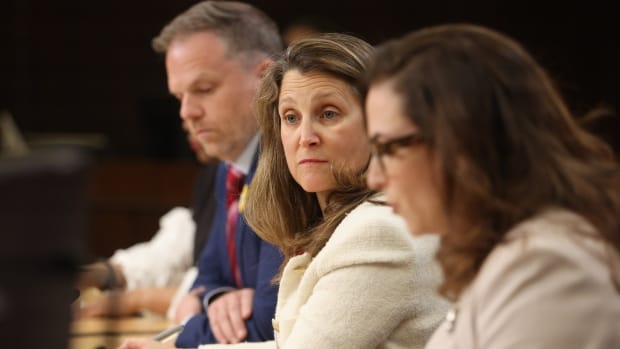Upcoming Federal Budget Raises Questions on Financing
As the Canadian government prepares to unveil the 2024 federal budget, questions loom over how the Liberals will finance more than $35 billion in new pledges. Deputy Prime Minister and Finance Minister Chrystia Freeland has been tight-lipped about potential tax increases for corporate Canada or major grocers, despite pressures to clarify the fiscal strategy.
Prime Minister Justin Trudeau has assured that taxes on the middle class will not rise, referencing the Liberals’ 2015 tax cut. However, Families Minister Jenna Sudds’ recent statements have stirred speculation, as she retracted an initial claim of “no new taxes” to a more ambiguous stance, suggesting Canadians should “see the budget” for details.
When pressed about possible new or higher taxes for wealthier individuals or corporations, Freeland emphasized the need for investment in Canada and its youth. She reiterated the government’s commitment to fiscal responsibility but stopped short of detailing where the additional revenue would originate.
The House Finance Committee recently saw a Liberal-backed NDP motion advocating for an excess profit tax on large grocery companies. Freeland’s response to whether this would be included in the budget was vague, reinforcing the narrative of necessary investments without specifying funding sources.
Parliamentary Budget Officer Yves Giroux commented on the challenges of implementing a wealth tax and the potential for assets to be moved out of Canada. He also noted the difficulty in defining normal profits for corporations, which could lead to investor shifts to less targeted sectors.
Freeland has defended the government’s decision to pre-announce certain budget elements, stating they “owe it to Canadians” to be transparent about their actions. With the budget set to be tabled in one week, Giroux and others are keenly awaiting details on how these expenditures will be financed—whether through taxes or cuts in other areas remains to be seen.






